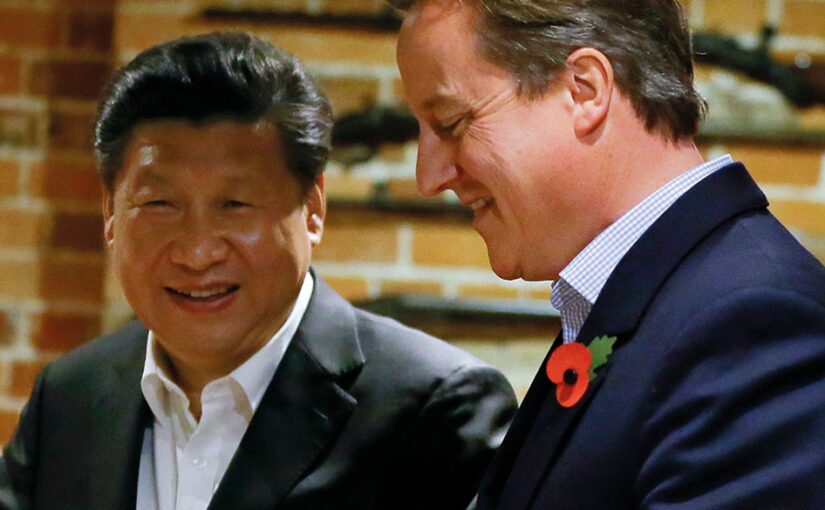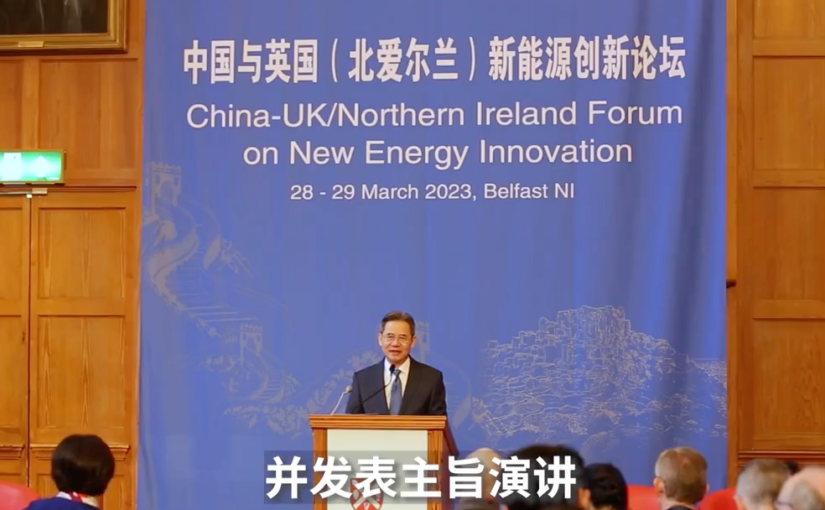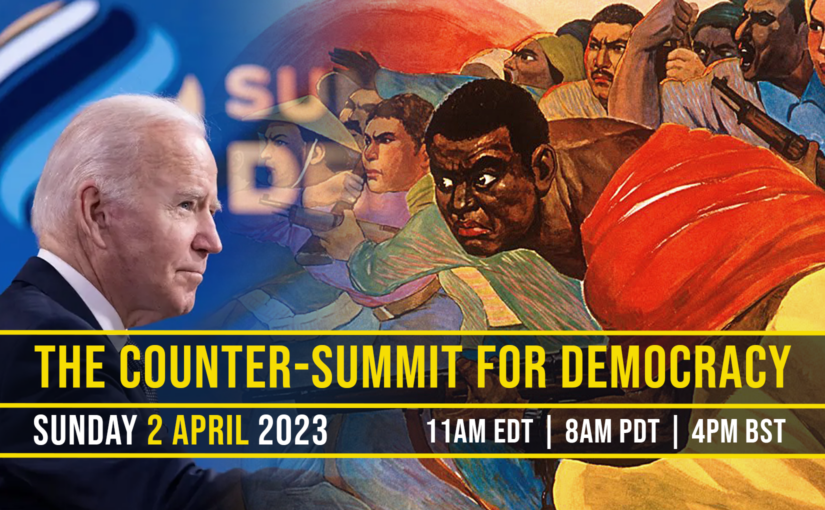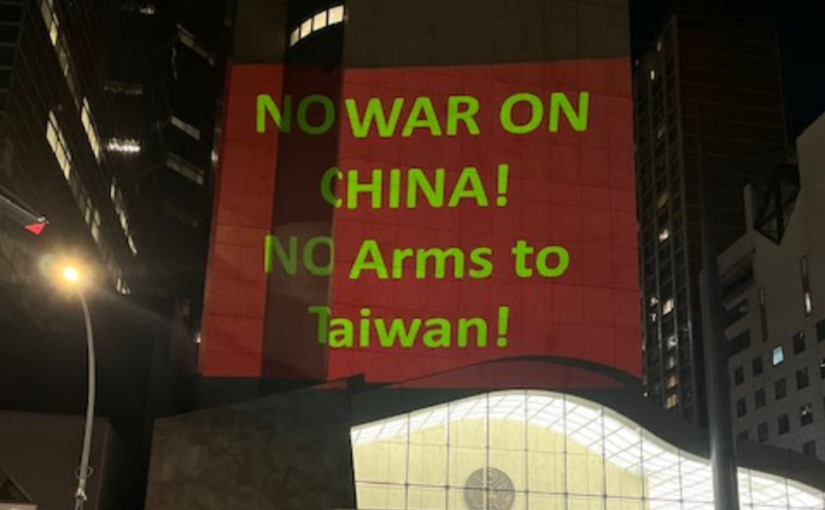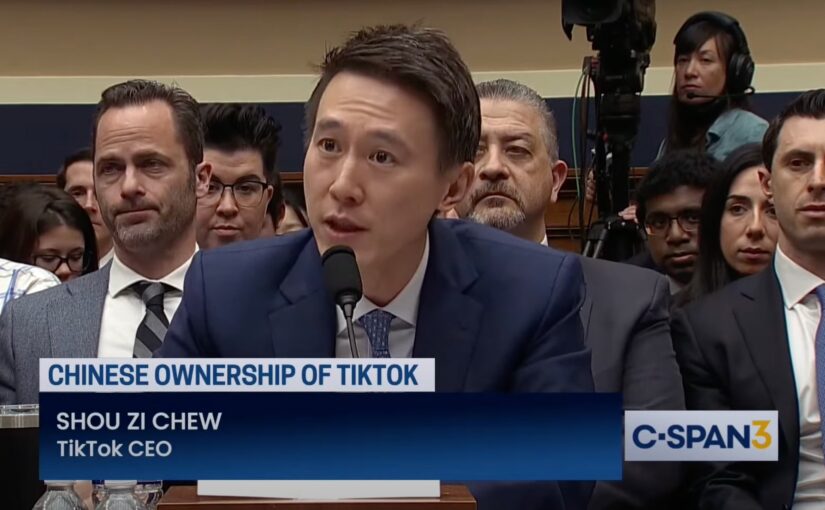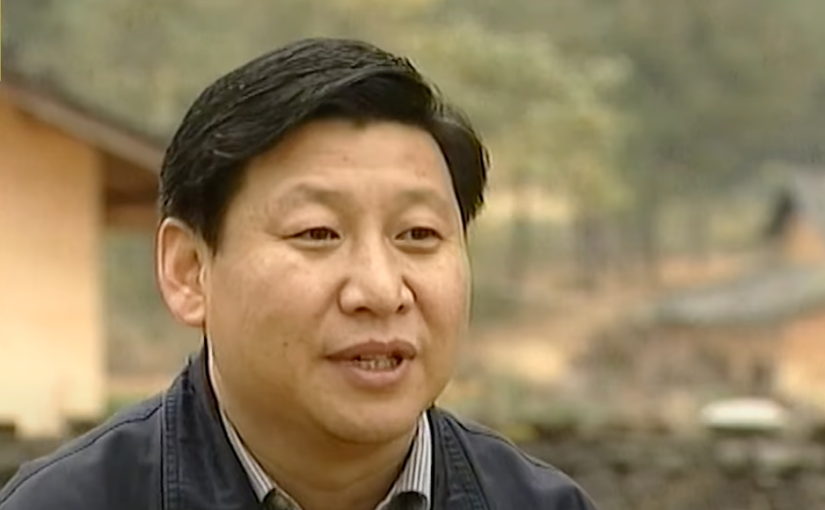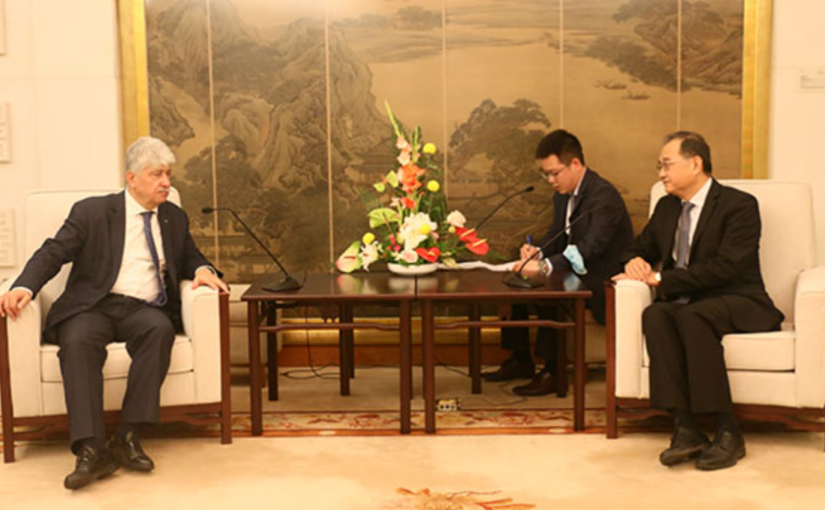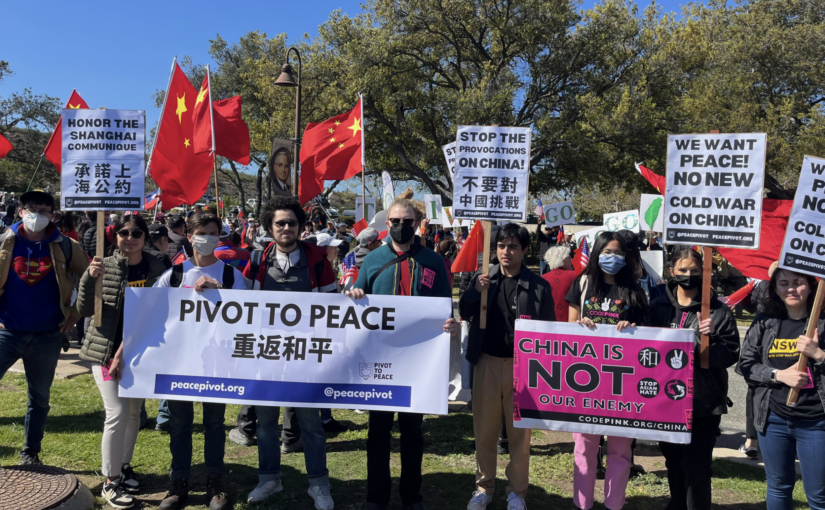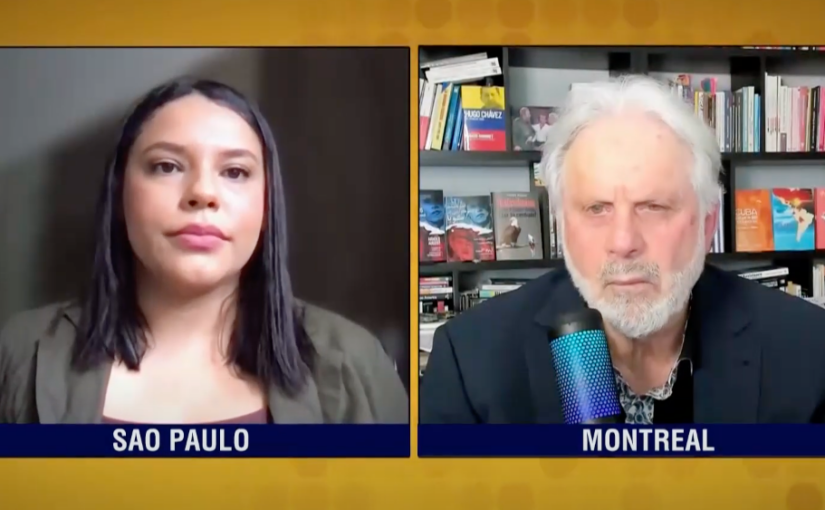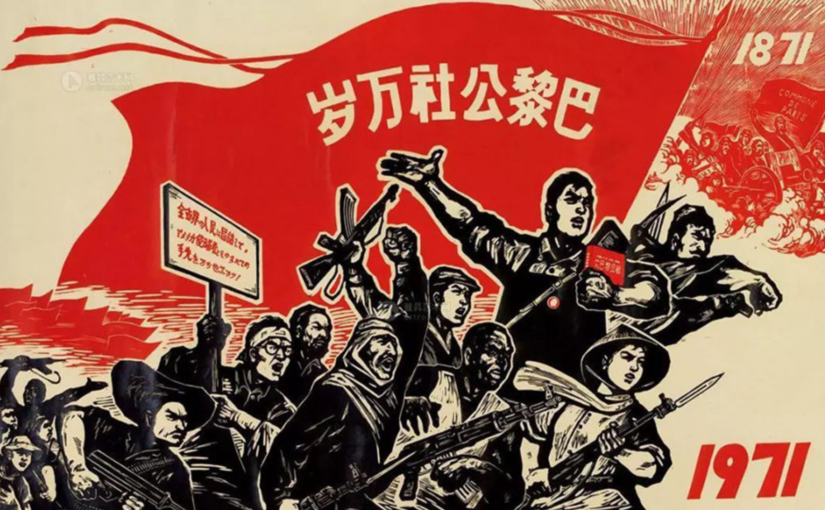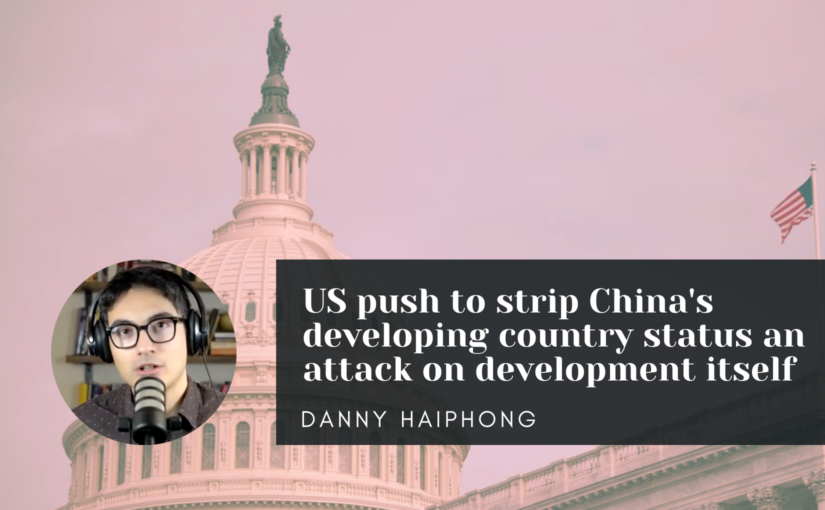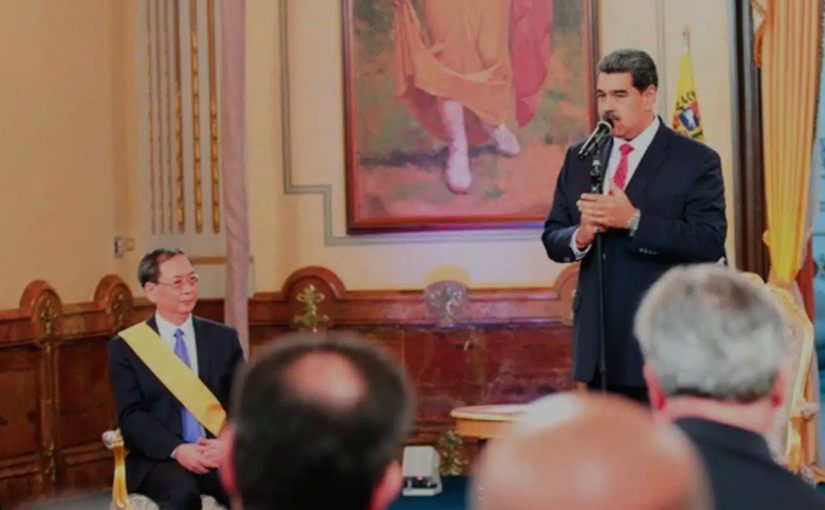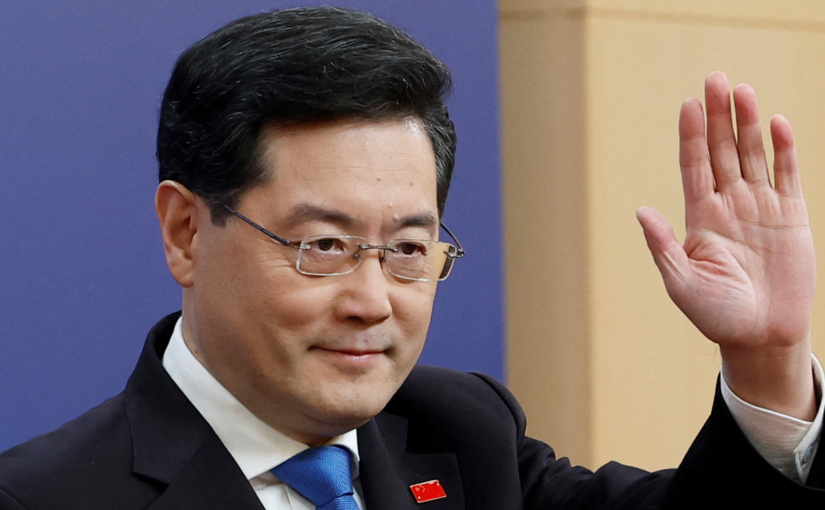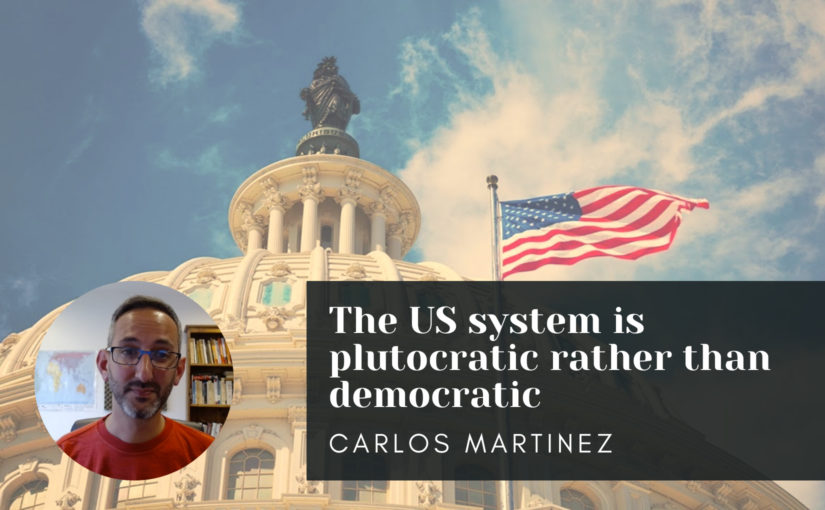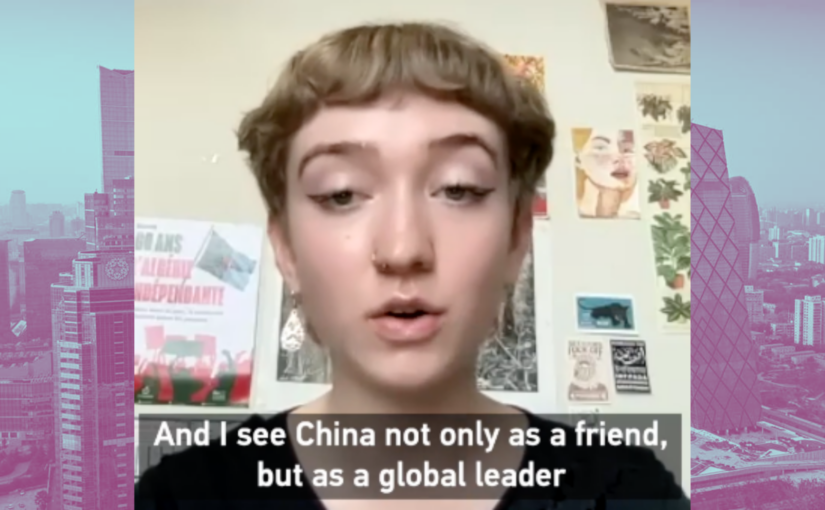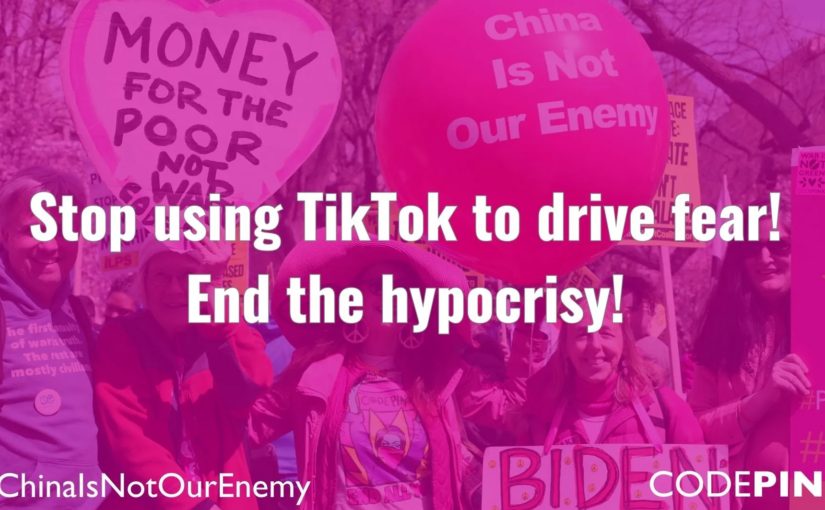In late March, Zheng Zeguang, China’s Ambassador to the UK, paid his first official visit to Northern Ireland. Despite strained relations between London and Beijing, this visit was a great success, with the Ambassador meeting a wide range of people from political, academic, business and other social circles, in his two-city tour of Belfast and Derry.
On March 27, Ambassador Zheng met Sinn Féin’s Christina Black, the current Lord Mayor of Belfast. Mayor Black warmly welcomed the Ambassador and his delegation. She said that, in 2016, Belfast became a sister city of Shenyang, and since then the two sides have made positive progress in mutually beneficial cooperation in the fields of economy, trade, education, and culture. Belfast has world-renowned universities and unique advantages in high-end manufacturing, green development, and many other areas. It is a city full of vitality, hope, and warmth. She was eagerly looking forward to unleashing the cooperation potential between China and Belfast through Ambassador Zheng’s visit, and welcomes more Chinese investors, students and tourists to come to Belfast.
Ambassador Zheng thanked the Lord Mayor for her warm hospitality. He said that during his visit to Belfast, he had a taste of the city’s historical heritage and unique political, economic, and cultural characteristics. The Ambassador expressed his hope for joint efforts of the two sides to promote mutual understanding, deepen friendship, and advance exchanges and cooperation.
Ambassador Zheng said that China is promoting high-quality development and will continue to pursue opening up at a higher level and accelerate green transformation. There is great potential for cooperation between China and Belfast on business, education, cultural exchanges, and tourism. It is hoped that Belfast and Shenyang will strengthen exchanges and cooperation as sister cities to bring more tangible benefits to the people of both sides.
Speaking on camera to China Daily after the meeting, Black said: “I have to say our relationship with China is fantastic.”
On being elected Lord Mayor in June last year, Councillor Black had said: “I love this city. I was born and raised here in a strong working-class community and I am immensely proud to be a Bealfeirstian…
“As a community activist, I am committed to empowering local people and communities, and making sure people have a strong voice on their side. It’s what inspired me to get involved in politics, and I am honoured to now be representing the city I love so much, as its First Citizen.”
Councillor Black said one of her priorities for her term in office was to showcase Belfast’s diversity, and support workers and families through the cost of living crisis. She said:
“I’m delighted to have this amazing opportunity. I’m passionate about this city and its people and I can’t wait to get out and meet new people and find out more about the amazing work that’s going on in communities right across our city. I will be Belfast’s biggest ambassador and will use my time in office to keep pushing forward priorities around the inclusive regeneration of our city.
“Belfast is a confident and thriving city with enormous untapped potential to prosper further. The opportunities for our city to grow are endless and working together we can seize them. During my term I want to be a positive voice for everyone in this wonderful city.”
The following day, Ambassador Zheng met with Alex Maskey, the Speaker of the Northern Ireland Assembly. Maskey is a veteran leader of Sinn Féin who has devoted his whole life to the struggle for Irish freedom. He was interned without trial twice in the 1970s and survived two assassination attempts.
The two had an in-depth exchange of views on enhancing cooperation between China and Northern Ireland in various fields.
Both sides believe that there is great potential for mutually beneficial cooperation between China and Northern Ireland and that fruitful results have been achieved at the China-UK/Northern Ireland Forum on New Energy Innovation. China and Northern Ireland should strengthen exchanges and dialogue, deepen mutual understanding, and actively expand cooperation in the fields of economy and trade, new energy, financial services, education, culture, and tourism, so as to better benefit their people.
On March 29, the Ambassador met with the Mayor of Derry and Strabane, Sinn Féin’s Sandra Duffy. Mayor Duffy warmly welcomed Ambassador Zheng and his delegation and outlined the city’s development in recent years and its future plans. She said that Derry has a number of favourable conditions, such as its geographical advantage of connecting the European Union and the United Kingdom. It has identified new energy, digital economy, high-end manufacturing, financial services, and health as the key sectors for future development, and Chinese entrepreneurs are welcome to invest in the city. Derry and Dalian have carried out sister-city cooperation for five years, and the two sides have achieved positive results in mutually beneficial cooperation in the fields of economy and trade, education, research and development, tourism, and culture. The city views China as an opportunity for development and looks forward to expanding exchanges and cooperation through the Ambassador’s visit.
Ambassador Zheng thanked Mayor Duffy for her warm hospitality, and expressed his hope that through his visit, mutual understanding between China and Northern Ireland will be enhanced and friendship and cooperation deepened. Although China-UK relations are currently facing some challenges, local practical cooperation has been growing steadily, which reflects the huge potential of cooperation between the two sides and the shared aspirations of the two peoples. China will continue to actively support Dalian and other Chinese cities to expand friendly exchanges and cooperation with Derry, especially to further tap into the potential for cooperation in areas such as economy and trade, education, culture, tourism, sports, new energy, and high-end manufacturing, so as to better benefit the people of both sides.
In her meeting with the Ambassador, the head of the Northern Ireland Civil Service Jayne Brady said that Northern Ireland has long-standing friendly exchanges with China and attaches great importance to developing relations with the country. Northern Ireland enjoys strong technological advantages in fields such as green economy, financial services, and food safety, and has the geographical advantage of being a bridge connecting the two major markets of the European Union and the United Kingdom. She welcomes Chinese companies to invest in Northern Ireland and hopes that hydrogen-powered buses, whiskey and other products from Northern Ireland can enter the Chinese market. Northern Ireland would also like to further expand exchanges and cooperation with China in education, culture, and tourism, among other areas.
Ambassador Zheng said that in recent years, China and Northern Ireland have carried out fruitful cooperation in economy and trade, education, culture, and other fields, bringing tangible benefits to both sides and that there are great potential and broad prospects for cooperation between the two sides in new energy innovation. China welcomes more high-quality products from Northern Ireland to enter the Chinese market and more friends to go to China, supports the cities and institutions of the two sides to strengthen partnerships, and encourages more two-way personnel exchanges, so as to transform the potential of cooperation into practical cooperation results and bring more benefits to the people of both sides.
Ambassador Zheng also visited Ulster University and Queens University Belfast. He commended Ulster University on its outstanding strength in teaching and research and the positive progress it had made in cooperation with Chinese universities. He also applauded Ulster University Confucius Institute for its important contributions to helping the people of Northern Ireland learn Chinese and understand Chinese history and culture, and to promoting educational cooperation between China and Northern Ireland.
Ambassador Zheng expressed hope for Ulster University to continue to take the lead in cooperation with China, strengthen exchanges and cooperation with Chinese universities, and leverage its complementary advantages to achieve mutual benefit. He also expressed best wishes for greater success of the Confucius Institute, and his hope that it will continue to provide world-class Chinese language teaching to students in Northern Ireland and make positive contributions to enhancing the friendship between the people of China and Northern Ireland.
Vice-Chancellor Paul Bartholomew said that Ulster University cherishes its cooperation with China and has established partnerships with many Chinese universities such as Nanjing University of Chinese Medicine and Shaanxi University of Science and Technology. The relevant cooperation continued uninterrupted even during COVID, which speaks fully to its resilience and strong will to cooperate with Chinese universities. Ulster University looks forward to further strengthening the cooperation, and welcomes more Chinese students to study at the university. Ulster University will continue to run the Confucius Institute well and play an active role in promoting educational cooperation and cultural exchanges between China and Northern Ireland.
Visiting Queen’s University Belfast, Vice-Chancellor Ian Greer said that his university attaches great importance to exchanges and cooperation with Chinese universities and welcomes more Chinese students to study at Queen’s. The university values China’s strength in research and huge potential of development and would like to further deepen cooperation with Chinese scientific research institutions. It was a great honour for him to co-host the China-UK/Northern Ireland Forum on New Energy Innovation with the Chinese Consulate General in Belfast. The forum was a meaningful trial to tap into complementary advantages for win-win results. It is hoped that the two sides will continue to explore and carry out mutually beneficial cooperation and contribute to green and low-carbon development in Northern Ireland and China.
Ambassador Zheng noted that Queen’s is a world-renowned university and stands out for its top-class teaching and research capacity. It is great to see that Queen’s has established cooperative relations with many Chinese universities. China is striving for high-quality development and supports technological innovation. It has a super-size market and unique advantages in ultra-large-scale application of emerging technologies. China is ready to encourage more universities to expand teaching and research cooperation with Queen’s and will encourage more Chinese students to choose it as their destination for studying overseas.
Addressing a welcome reception at the Chinese Consulate General in Belfast, Zheng said that his country will encourage more Chinese groups, enterprises, students and tourists to come to Northern Ireland, and believes that in Northern Ireland they will find a safe and friendly cultural environment and a fair and open business environment. We welcome people from all walks of life in Northern Ireland to visit China more often, and hope that the business community in Northern Ireland will expand into the Chinese market and share development opportunities through platforms such as the China International Fair for Trade in Services, the China International Import Expo, the Canton Fair, and the World Intelligence Congress.
At a press conference the Chinese Ambassador said:
“This is my first visit to Northern Ireland and Belfast. I enjoyed the visit so much. Regional cooperation is a very important component of state-to-state relations. The purpose of my visit is to enhance mutual understanding and promote friendship and cooperation. In the past two days, I had extensive exchanges with people from various sectors in Northern Ireland and discussed with them how best to expand cooperation in various fields between China and Northern Ireland. We all see a huge potential and are keen to broaden cooperation between the two sides. I feel very encouraged by it.
“This morning, I attended the China-UK/Northern Ireland Forum on New Energy Innovation, the first of this kind between China and the UK. The discussions were very productive, and in particular, there was a keen interest on both sides to work together to research and develop hydrogen energy and to put it into application. It is a very good example that China and Northern Ireland can conduct more dialogues and discussions in the traditional areas of investment, trade, education, cultural exchange, tourism, and sports, as well as new areas such as new energy, financial services, financial technology, biomedicine and creative industries. I am optimistic about the opportunities of cooperation between the two sides.”
Responding to a question from CGTN, he said:
“I do see the benefits of cooperation and exchanges between China and Northern Ireland already. In recent years, two-way trade and investment have kept growing, and there are about 2,000 Chinese students studying in Queen’s University Belfast, Ulster University and other institutions. The Vice Chancellors of the two universities told me that they want to see more Chinese students coming to Northern Ireland and would like to have stronger cooperation in teaching and research with Chinese universities. The CEO of the corporation which invested and built the Titanic Museum told me that before the pandemic, there were so many Chinese tourists, and that she would love to see more Chinese tourists return to Northern Ireland and Belfast.
“It was an honour for me to have a meeting with Speaker Alex Maskey and talk to the representatives of political parties. I had a very good meeting with the head of the civil service Dr Brady as well. I feel encouraged by their positive attitude towards cooperation with China. I said to my friends here that Northern Ireland is a best kept secret. It is so beautiful, pure, and full of potential. I think in the months to come, you will see more delegations and tourists coming this way. We encourage people from all walks of life here to visit China as well. This cooperation certainly serves the interest of both sides.”
A reporter from Raidió Fáilte asked: “Ambassador, on behalf of the Irish speaking community in Belfast, I want to welcome you, on your first visit to our city. Raidió Fáilte are currently working on a series of multi-cultural, multi-lingual projects, with your colleagues in the Confucius institute. In your opinion, how important are these collaborations, and would you like to see similar co-initiatives in the future?”
The Ambassador replied: “The cooperation on Confucius Institutes is hugely important as it not only provides opportunities for students here to learn the Chinese language and to better appreciate the Chinese culture, but also helps facilitate cultural exchanges between the two sides.
“The Confucius Institute that I have visited is located at Ulster University. It is a big success, a model institute. It has the support of the British Council, the support of the University and the support of the Chinese Consulate General as well. It is so popular among the young students. I was able to meet with a group of ‘young ambassadors’. The students are speaking perfect Mandarin and they will obviously become citizens of the world. When they travel to China, do business with China, and make friends in China, it will be so easy to do so without language barrier. We will continue to support the teaching of the Chinese language and the Confucius Institutes here.”
Among the diplomatic and business representatives who accompanied Ambassador Zheng on his visit were those from the London offices of the China National Petroleum Corporation, China Construction Bank and the Agricultural Bank of China. Research agreements were signed between Queen’s University Belfast and various academic institutions in China covering hydrogen energy.
Earlier in March, the Republic of Ireland’s Minister for the Environment, Climate and Communications and Minister for Transport, Eamon Ryan, who is also the leader of Ireland’s Green Party, visited China. Ryan, who previously visited China in 1987 and 2010, told the Irish Times prior to his visit:
“One of the main things I’m looking forward to in the visit is to be able to discuss some key issues around climate change and energy, and that’s part of a wider European-Chinese dialogue that is continuing. So, we have to, to a certain extent, put aside if there are other issues of real concern and make sure we do get cooperation, because the world would not be a safe place for anyone if we don’t make that progress on climate.”
Although the main focus of his trip was climate change, renewable energy and transport policy, with visits including those to a high-speed rail terminal and to solar technology companies, Minister Ryan also attended celebrations for Saint Patrick’s Day in Beijing, Shanghai and Hong Kong. In his Irish Times interview, he noted:
“In many ways, they [the Chinese] have a lead now when it comes to the new industrial revolution that’s taking place in clean energy technologies. The Chinese export 85 per cent of the batteries that are going to be used in electric vehicles. They export 80 per cent of the solar panels. So, they have an interest in terms of their own economic development. They have a real opportunity in this clean energy area. So, both for their need to protect their own people, but also to continue to maintain their advantage in clean energy, it makes sense for China to be progressive…
“Historically, China has looked to Ireland with interest in a disproportionate scale to our size for a variety of historical reasons, going right back to their inclusion in the United Nations and so on.”
Embedded below is a short video produced by China Daily on Ambassador Zheng Zeguang’s Northern Ireland visit.
